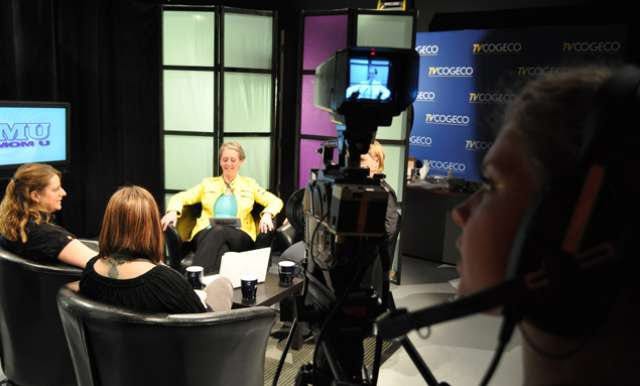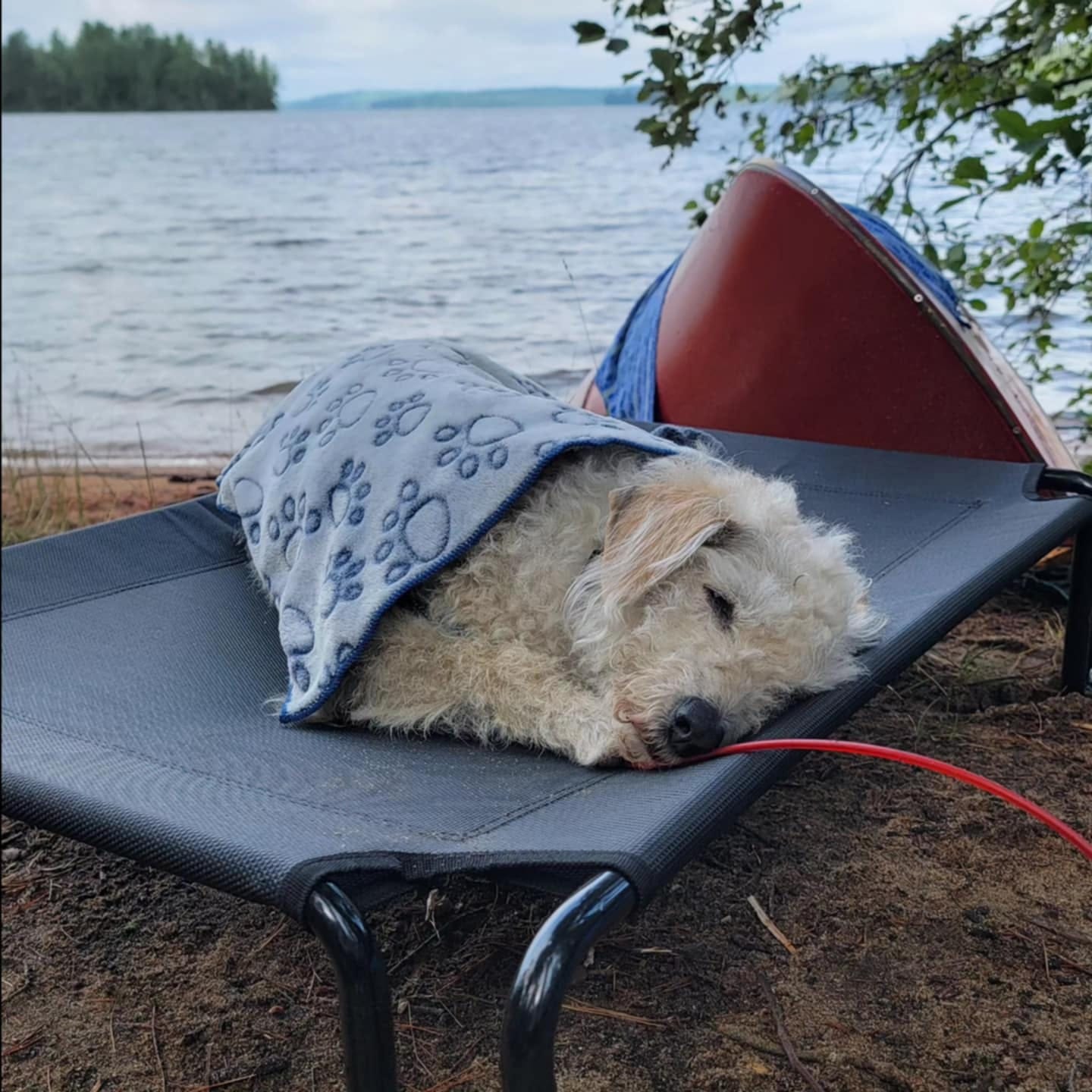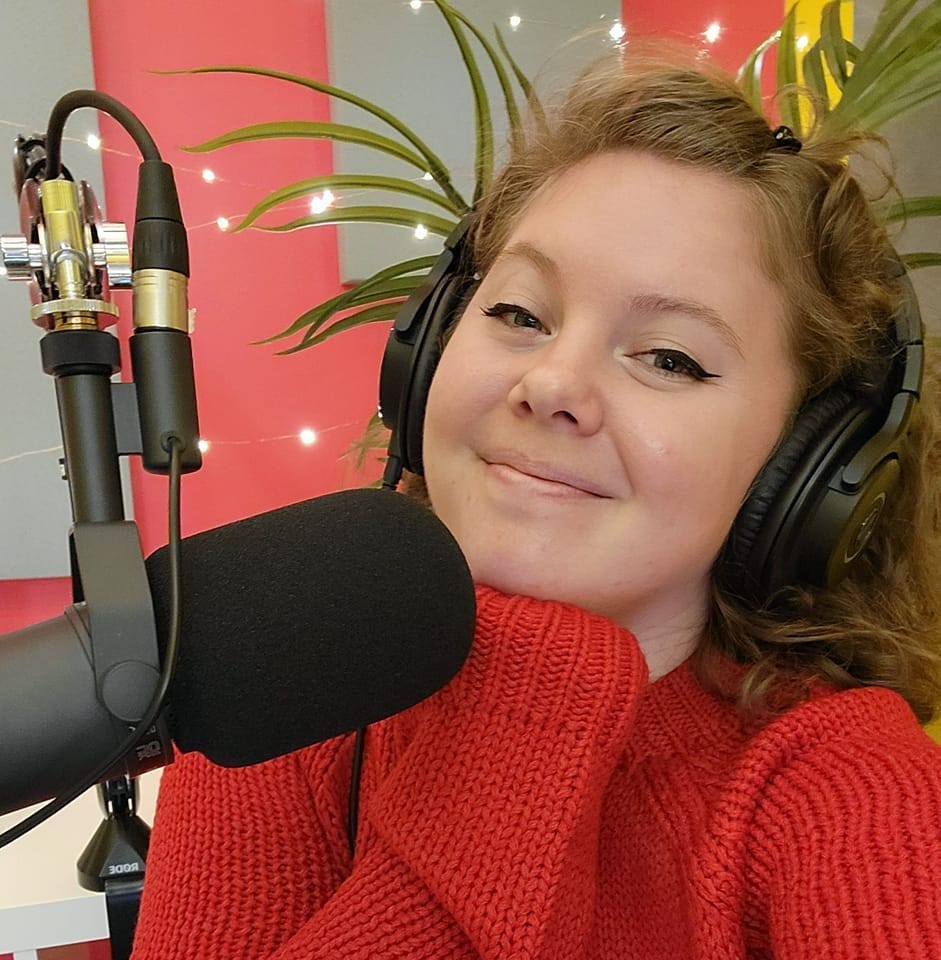Are hyperlocal podcast networks replacing local media?
Vol. 51 - Scott Clark talks building a North Bay-focused podcast network, Lower Street buys Pacific Content, Media Indigena launches 2024 Summer Series.
Hihi!! Happy Pod the North Tuesday!
In this issue:
The North Bay Echo Community Podcast Network is bringing local narratives back home.
Canadian Indie: The Entrepreneur's Therapist
True North Podcast: Travelling Metis
Congrats are in order to the Canadian podcast community!
BTW:
There are currently 31 long-term drinking water advisories in effect in 29 First Nations communities across Canada. The last lifted advisory was June 2024. The most recent added advisory was July 2024.
Thoughts from the ecosystem:
The North Bay Echo Community Podcast Network is bringing local narratives back home.
In his August 2nd newsletter, US-based media industry journalist
noted a trend happening south of the border: the decline of legacy local newspapers and the rising number of digital-only startups finding sustainable models for local news. it sounded mighty familiar.Our American neighbours aren’t the only ones with a shifting local media landscape — it’s happening right here in Canada!
It feels like every month there’s an announcement about yet another local radio or television station getting shut down by one of Canada’s handful of media giants. Today, the majority of Canada is finding it harder and harder to find the municipal and regional news that matters to them.
Not only is not accessing hyperlocal-news problematic for a number of reasons, but community life almost feels nostalgic. Maybe you remember the old days like I do; showing up to farmers markets (and usually the base of ski hills in the winter) where the local radio station would have a tent sent up going live hits, running contests and entertainment for the community. Those days are seemingly long gone, but maybe just up until now.
Despite the loss of traditional local media, podcasts might actually be at the forefront of reviving local narratives. Earlier this year, CBC Podcasts launched their series’ of local podcasts, “This is…” and “Good Question” based in some of Canada’s more major cities like Montreal, Ottawa and Edmonton.
In my opinion, it was the North Bay Echo Community Podcast Network that’s made the biggest splash and quite possibly the most interesting play in the North American podcasting landscape. And it’s especially significant for Canadian media. The network has 12 North Bay-focused podcasts, all embedding themselves into the everyday lives of North Bay locals, and building relationships with local journalists and media.
I talked to Scott Clark, a 20-year broadcasting veteran, President of Clark Communications, and catalyst to North Bay Echo. The network is the start of an exiting shift the media landscape in northern Ontario — and possibly all of Canada. I asked Scott about building the network, it’s impact on the city, and how it might be changing the way we think about accessing local news.
This interview has been edited for clarity and brevity for the sake of the newsletter format. Paid subscribers can listen to the whole thing out later this week!

Kattie Laur: Give me a rundown of North Bay Echo Community Podcast Network. Where did the inspiration to start it come from?
Scott Clark: This idea started just over a year ago.
What's changing in the media landscape is [that] Toronto, Ottawa, Montreal – these big markets – [media] is pretty well the same. They have lots of options for things: newspapers, radio, TV. But where we are in Northern Ontario – and in a lot of rural areas – I worked in the radio station [with] 45 employees – there's five now. The morning show is piped in from Toronto. TV news, it's all centralized and the paper doesn't come out five days a week anymore. It's dramatically changed.
The narrative of conversations within a small town has really changed. There's a local journalist, Dave Dale. He did a story around the municipal election about the person running to be Mayor not getting along with his neighbor. It created a bit of a storm and he was vilified publicly. I had a coffee with Dave and said, ‘we've never talked before but I feel bad. You're really taking a beating here’. He had started doing some podcasts and I said, ‘we should do some sort of community podcast’.
I asked my team and we talked about if we had a podcast, and slightly different ones that could just be local oriented. We don't want to have to be bigger than North Bay, we're just a small community. And that's what we started.
Right after lunch I started sourcing equipment, sourcing a technician, and we built this little network.
Erin Trafford, out on the East Coast with Story Studio Network, I reached out to her and she has really helped us all along the way.
So that's what it's evolved to. We don't want to compete against any of the local journalists. We're having long form interviews on topics that concern the community; the arts, sports, community interest when it comes to things like City Hall and things like that. We have a show called To North Bay with Love and it's a love letter to North Bay, finding heroes within our community. We're around 2,000 downloads per show a month. It's rocking along and it's growing.
KL: What was the reception like locally when the network was launched? How embedded into the community is it?
SC: There's a lot of really quality journalists and broadcasters in the community that used to work in the field and still have that passion. They're dying for this artistic expression.
But something interesting is being able to discuss complex issues in long form. We had one of the top environmental engineers from the city talking about PFAS – the forever chemicals that they've found in the groundwater around our airport. Having a discussion about PFAS, you can't do that in a 45 second clip.
The city's starting to see the value of these long form interviews, where they're not doing ‘gotcha’ questions and stuff. It's a conversation about understanding and we're getting really positive feedback. We're getting knocks on the door from a lot of former journalists that say, ‘hey, do you guys need a hand?’
KL: The local podcasting scene reminds me of local TV almost. I did a co-op as a teenager with TVCogeco and got to go tape City Council meetings.
I think we're seeing local radio, local news, all being dismantled across the country and it seems like a local podcast network would be the thing to replace it. Is it taking over for local TV? How do you compare the two?
SC: I think you're bang on when you say that because it does feel like it's organic. That ‘we're not perfect, we don't have the fanciest set’.
But it's so interesting you said that because our local cable station here at Cogeco, they've always had a partnership with the local college, Canada College, so that Journalism and TV and Radio students could actually train, but even that's changing. All those programs are gone. To find a journalism program or TV program or radio, they're gone.
One of the things I did early on is I went to Cogeco and talked to the station manager and he was all for what we're doing. I said, ‘would you pick up our content?’ and he said, ‘absolutely, because you don't fall into the same CRTC regulations’. I spoke to the regional manager of Cogeco that covers the entire province and they're open to it as well because they're the same as everybody else now – based on volunteers. It's hard to get volunteers cause there's no radio and TV programs. So how did they get local content?
I think we're providing a bit of a solution for them. One of our most popular podcasts was BayToday, which is ‘Village Media’ down in your area. Village Media's really done a good job with local journalism. I went to Jeff Elgie (CEO of Village Media) and said we'd like to supplement whatever you're doing: we want to dive in deeper to your stories, interview you. And what we would love in return is if you use some of our podcasts. It worked out really well for them because they get lots of clicks and hits.
KL: How has it been for you being in radio and in podcasting?
SC: I think that broadcasters, specifically radio broadcasters, we think we've been podcasting all our life, but no.
In broadcasting, we didn't talk like human beings. I think it's a big adjustment. We've had calls from different radio broadcasters asking us, ‘can you help us with the podcast side of things?’. It's hard when you've had a career of not talking like a regular person. I think they really struggle because they're in this certain laneway that's just part of their DNA and trying to break them out of that is really, really difficult.
I was a pretty good broadcaster and then after my first podcast I did, the young sound engineer said, ‘yeah, that's not a podcast’. When I listened to it, it took me a bit. I'm still shocked even though I have been in this for a little bit.
KL: I'm curious about local advertisers. Are they looking to the network to advertise?
SC: I went to a few local people just to get them on the air so when we kick[ed] this off we [could] say ‘you can access the community through this platform’.
I have no doubt that if I went out today and started knocking on doors, no problem filling up everything. But I want to be really strategic about how we go about doing this. In this industry, it's like ‘how do I keep adding value for my client base, the subscribers, but also grow at the same time’.
We work so hard to figure out what's good for Coca Cola, McDonald's, Pepsi, Johnson Johnson, the big players, that sometimes in smaller communities people just want to advertise because they trust you and they like what you guys are talking about.
[In Toronto] there’s a place called Tom's Place; it's a men's suit store. He would do a live hit on the news around the top of the hour. You could hear the store's busy in the background and he's just, off the cuff, doing this hit on the telephone. It was so homey. And when you're competing against Harry Rosen, this was like, ‘I like this guy!’ even in a huge market like Toronto. There's these gems – these mom and pop restaurants – that I actually want to go try.
KL: That's the fun thing about podcasting too, is that you don't have the pressure of what you would expect to put into a radio ad. With podcasting you can really experiment with a podcast ad and build a relationship with your marketer.
SC: It's interesting. Our conversations that we've had with some, I would say larger radio groups – it's a sales tool, right? They have these guardrails around how they sell things. Personally, I would love to see a shift to old time radio; multiple different types of programming. But nearly 90 percent of all radio stations are owned by three companies. So to break that cycle is really, really hard.
I don't want to take over the world by any means, but it'd be really interesting if we could just have a really powerful local medium. That's the only thing that we know we could do better than Toronto – they can't do ‘North Bay radio’.
Then, why can't we do this in Sudbury and Huntsville and these smaller communities that have nothing?
What Scott Clark is loving:
Buy exclusive ad space on Pod the North!
Tell the Pod the North community of over 1300 Canadian podcasters (!!) about your stuff, and book the exclusive ad spot at the top of the newsletter.
Check out this Canadian Indie: The Entrepreneur's Therapist
The shit will still hit the fan. That’s the nature of owning a business.
Entrepreneurship and mental health are intimately connected. The emotional rollercoaster of running a business, the pressures of wearing all the hats and keeping all the plates in the air can get to you. It's lonely and isolating work. Some days you might feel like burning your business down.
In an era of relentless stressors that can make you want to lose your crap on a daily basis, this podcast will meet you where you are, and provide you with small, doable strategies and mindset shifts that you can use on the fly.
True North Podcast Feature: Travelling Metis
Travelling Metis tells the stories of Metis people across Turtle Island.
You can support Pod the North by:
Sharing your commentary and Canadian podcasting news! Leave a comment on Substack or reply directly to the newsletter email!
If you’re feeling generous, supporting Pod the North financially! Become an on-going paid subscriber on Substack, buy me a coffee, or buy an ad!
Listen to Pod the North’s flagship podcast, Canardian, and rate it five stars!
What’s going on in Canada’s podcast ecosystem:
New Releases:
July 15, 2024 — The PowderPuff Girls, AKA: iconic Toronto Drag Queens; Van Goth, Perla, and Aurora Matrix, have launched a video podcast, The Powder Room! Subscribe for a bi-weekly round of dishing out hot gossip, recounting their most chaotic moments, and dissecting trending issues.
July 22, 2024 — Media Indigena has launched its 2024 Summer Series, a five-part compilation called “Why Canada Needs Natives Needy” which covers the ways Canada perpetuates Indigenous dependency.
July 27, 2024 — Catch up on all things Paris Olympics with Olympic FOMO. This pop-up podcast from CBC Podcasts recaps each day of the Olympics in 20 minutes or less, “bringing you the wins, losses, and hot goss from the Athlete's Village”.
You should know…
Probably the biggest news of late: Pacific Content has been acquired by UK-based podcast production agency, Lower Street. Pacific Content was due to close its doors this summer, but in a happy turn of events many of their talented folks will be joining the Lower Street team, including Annalise Nielsen as Head of Podcast Strategy and Development (who will also still be writing their newsletter)! Congratulations to everyone on this exciting new chapter!
Congratulations to Stacey Copeland, the absolute genius Researcher and Producer, who recently had a chapter published in The Oxford Handbook of Radio and Podcasting. Her chapter delves into the discoverability politics of lesbian radio and queer podcasting through archival and platform research.
Congratulations are in order for two Sonar Network podcasts: Happy to See Me and Dwarven Moss. Both podcasts are nominated for TO WebFest Awards, including a nomination for Tom Hodgins, who is nominated as Best Game Master for Dwarven Moss and just recently passed away. Hug your D&D friends. They are special.
Lead Podcasting has welcomed Caleb Buys to the team! He will be the brains behind the agency’s social media intiatives and support on production. Congratulations on this new role Caleb!
Mentally? a Magpie recently reviewed two CBC Podcasts shows that came out this year: Come by Chance and Tested, calling the latter a “piece of journalism that is high quality, resonant in content, and absolutely infuriating to listen to […] because of the subject matter, not because of the podcast itself”.
Black Canadian Voices Unite at The Soundwave Summit 2024. Black Canadian Creators’ Sherley Joseph recently shared her recap of the wonderful June event that happened in Toronto in a recent issue of
. ICYMI, give it a read!Events:
Audio Flux circuit 04 is now open for submissions through to September 15th. This circuit’s theme is “FIRST”, and the winning 3-minute audio piece will win $750 USD! You have about a month and a half to submit, don’t miss the deadline!
For your pod:
Shreya Sharma shared how much time to spend planning, creating, and marketing your podcast launch in the latest
Steve Pratt shared plenty of “juicy” tips on storytelling in a recent issue of
— from interviewing tactics to avoiding generic tropes. It’s a must read!
Is it time to make money with your podcast? Check out this Guide to Podcast Sponsorship and Ad Rates.
Just Joe (enjoying our recent canoe trip)…
Thanks for supporting Pod the North, I’ll be back in your inbox in two weeks!
Kattie
@Podkatt (Twitter, Spotify, and Goodpods) | @PodtheNorth (Bluesky and Instagram)




I have so much to say about this but in summary, a whole-hearted yes, audio local news will disrupt journalism. Period.